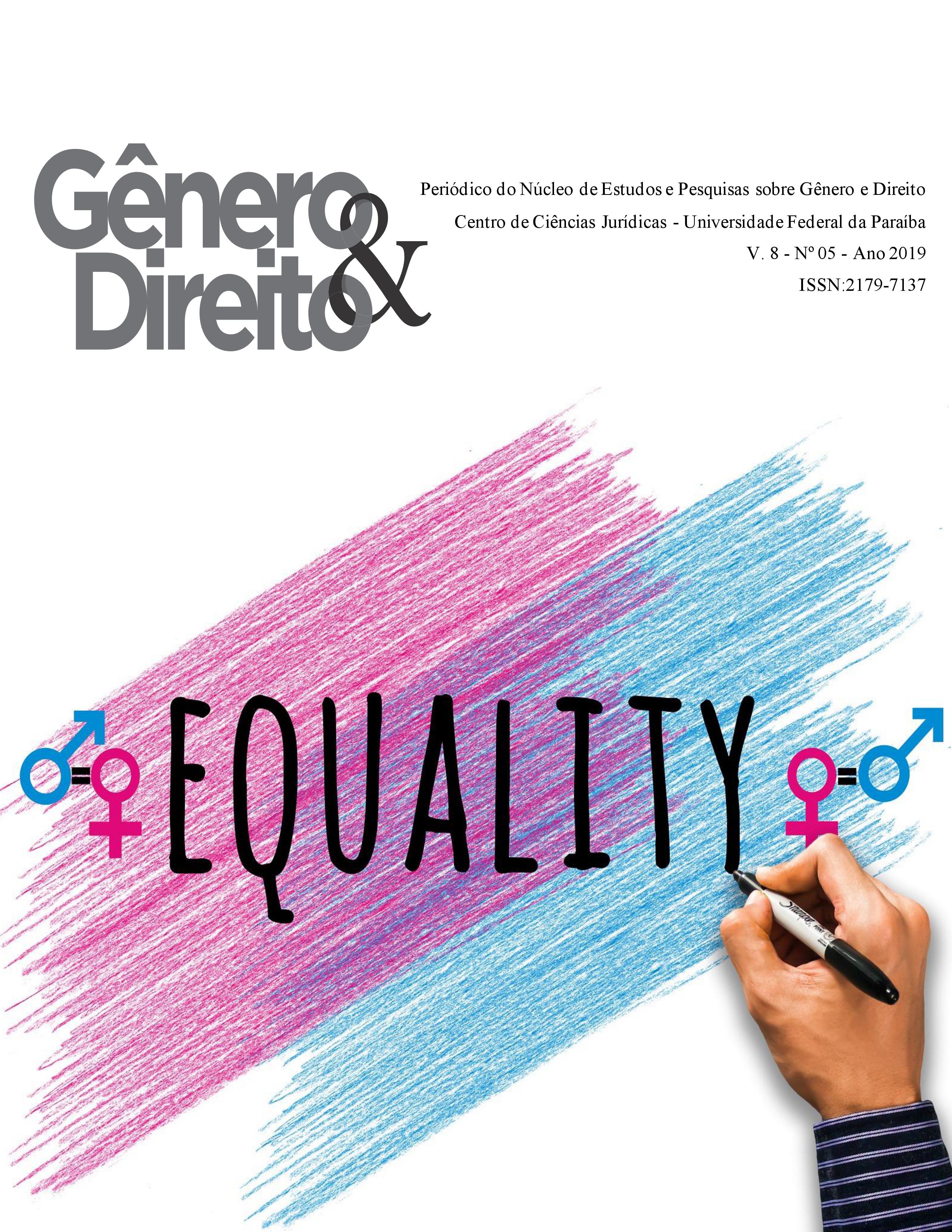SYSTEM OF DERIVATIONAL CHAINS IN RUSSIAN NOUNS: LINGUISTIC AND METHODICAL ASPECTS
DOI:
https://doi.org/10.22478/ufpb.2179-7137.2019v8n5.48629Palavras-chave:
Russian language, methodology, word formation, noun, word-formation chain, derivational relations.Resumo
The article describes the phenomenon of consistent derivation of words. The concept "word-forming chain" is used for its description in Russian linguistics. The subject of the study is the word-forming chains of nouns as a methodologically relevant means of language teaching. The purpose of the work is to characterize the structural and semantic properties of word-forming chains in the sphere of Russian nouns and to reveal the ways of their systematization. The presentation and the description of derivative groups forming word-building chains is carried out using the system-structural and functional-semantic methods. The study found that the typology of the substantive word-building chains of the Russian language is based on their system-structural reproducibility. The system is formed by binary and polynomial, linear and annular, complete and incomplete chains, as well as the chains that include monomotivated and poly-motivated derivatives. It is proved that the word-forming chain is one of the ways to cognize the systemic organization of the language word-forming level, the morphemic structure of derived words, the idiomatic nature of their semantics, and the linguocultural specifics of linguistic nomination.The purposeful methodical work on the study of consistent derivation as a language phenomenon promotes an active perception of many lexical and grammatical phenomena, as well as the development of the necessary skills of Russian derivative use in speech practiceDownloads
Não há dados estatísticos.
Referências
Corbett, G.G. Canonical derivational morphology. In: Word structure. V.3. Issue 2, 2010. pp: 141 – 155.
Tekin, Ö. Grundlagen der Kontrastiven Linguistik in Theorie und Praxis. Tübingen: Stauffenburg Verlag, 2012. pp: 300.
Lieber R., Stekauer P. (eds.), The Oxford Handbook of Derivational Morphology. Oxford University Press, 2014. pp: 768.
Word-Formation. An International Handbook of the Languages of Europe. Ed. By Muller, Peter O. /Ohnheiser, I. / Olsen, S. / Rainer, F. Verlag: De Gruyter Mouton, 2015. Volume 1. pp. 802. http://www.degruyter.com/view/serial/129039
Nurullina G.M. Yusupova Z.F. The use of dictionaries in teaching Russian language to bilingual students // Modern Journal of Language Teaching Methods: Special Issue (December 2016). pp: 92-96.
Tikhonov A.N. Basic concepts of Russian word formation // Tikhonov A.N. The dictionary of Russian language. In two volumes. Volume I. M.: "Russian Language", 1985. pp. 18 - 52.
Tikhonov A.N. Russian language dictionary. In 2 volumes. Moscow: "Russian Language", 1985.
I.A. Shirshov. Theoretical problems of nesting. Moscow: Prometheus, 1999. 236 p.
E.I. Koryakovtseva Names of action in Russian language: history, word-formation semantics. M.: RAS, Institute of Russian language named after V.V. Vinogradov, 1998. 220 p.
Rakhimova D.I., Chupryakova O.A., Safonova S.S. Binary opposition «rich – poor» in Russian, Tatar and English linguocultures // QUID: Investigacion, ciencia y tecnologia, 2017, Special Issue 1, pp: 2495-2501.
Shchuklina T.Y. Precedent phenomena as the source of non-usual word-formation in the contemporary Russian mass media // Przegląd Wschodnioeuropejski. – 2017. - VIII/1. pp: 209–217.
Sadrieva E.V., Erofeeva I.V. Representation of human’s image by using word-formation resources in the language of Russian chronicles (using the example of nouns with suffixes – (ьн) икъ) //Journal of Language and Literature. - 2016. - Vol.7, No. 1. pp: 203-206.
Pounder A. Process and Paradigms in Word-Formation Morphology. De Gruyter Mouton, 2011. 744 p
Tekin, Ö. Grundlagen der Kontrastiven Linguistik in Theorie und Praxis. Tübingen: Stauffenburg Verlag, 2012. pp: 300.
Lieber R., Stekauer P. (eds.), The Oxford Handbook of Derivational Morphology. Oxford University Press, 2014. pp: 768.
Word-Formation. An International Handbook of the Languages of Europe. Ed. By Muller, Peter O. /Ohnheiser, I. / Olsen, S. / Rainer, F. Verlag: De Gruyter Mouton, 2015. Volume 1. pp. 802. http://www.degruyter.com/view/serial/129039
Nurullina G.M. Yusupova Z.F. The use of dictionaries in teaching Russian language to bilingual students // Modern Journal of Language Teaching Methods: Special Issue (December 2016). pp: 92-96.
Tikhonov A.N. Basic concepts of Russian word formation // Tikhonov A.N. The dictionary of Russian language. In two volumes. Volume I. M.: "Russian Language", 1985. pp. 18 - 52.
Tikhonov A.N. Russian language dictionary. In 2 volumes. Moscow: "Russian Language", 1985.
I.A. Shirshov. Theoretical problems of nesting. Moscow: Prometheus, 1999. 236 p.
E.I. Koryakovtseva Names of action in Russian language: history, word-formation semantics. M.: RAS, Institute of Russian language named after V.V. Vinogradov, 1998. 220 p.
Rakhimova D.I., Chupryakova O.A., Safonova S.S. Binary opposition «rich – poor» in Russian, Tatar and English linguocultures // QUID: Investigacion, ciencia y tecnologia, 2017, Special Issue 1, pp: 2495-2501.
Shchuklina T.Y. Precedent phenomena as the source of non-usual word-formation in the contemporary Russian mass media // Przegląd Wschodnioeuropejski. – 2017. - VIII/1. pp: 209–217.
Sadrieva E.V., Erofeeva I.V. Representation of human’s image by using word-formation resources in the language of Russian chronicles (using the example of nouns with suffixes – (ьн) икъ) //Journal of Language and Literature. - 2016. - Vol.7, No. 1. pp: 203-206.
Pounder A. Process and Paradigms in Word-Formation Morphology. De Gruyter Mouton, 2011. 744 p
Downloads
Publicado
2019-10-27
Como Citar
SUBBOTINA, N. S. .; FATKHUTDINOVA, V. G. .; KORIAKOWCEWA, E. I. . SYSTEM OF DERIVATIONAL CHAINS IN RUSSIAN NOUNS: LINGUISTIC AND METHODICAL ASPECTS. Gênero & Direito, [S. l.], v. 8, n. 5, 2019. DOI: 10.22478/ufpb.2179-7137.2019v8n5.48629. Disponível em: https://periodicos.ufpb.br/ojs2/index.php/ged/article/view/48629. Acesso em: 10 abr. 2025.
Edição
Seção
Seção Livre

